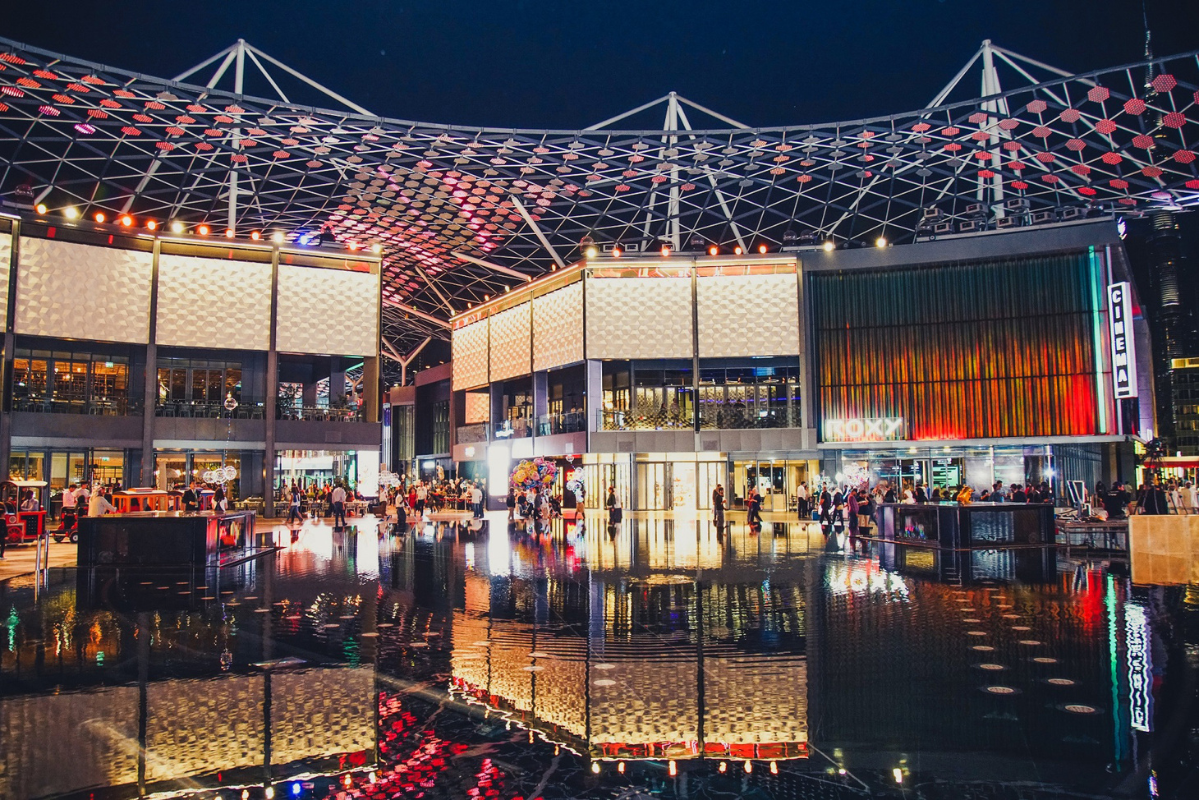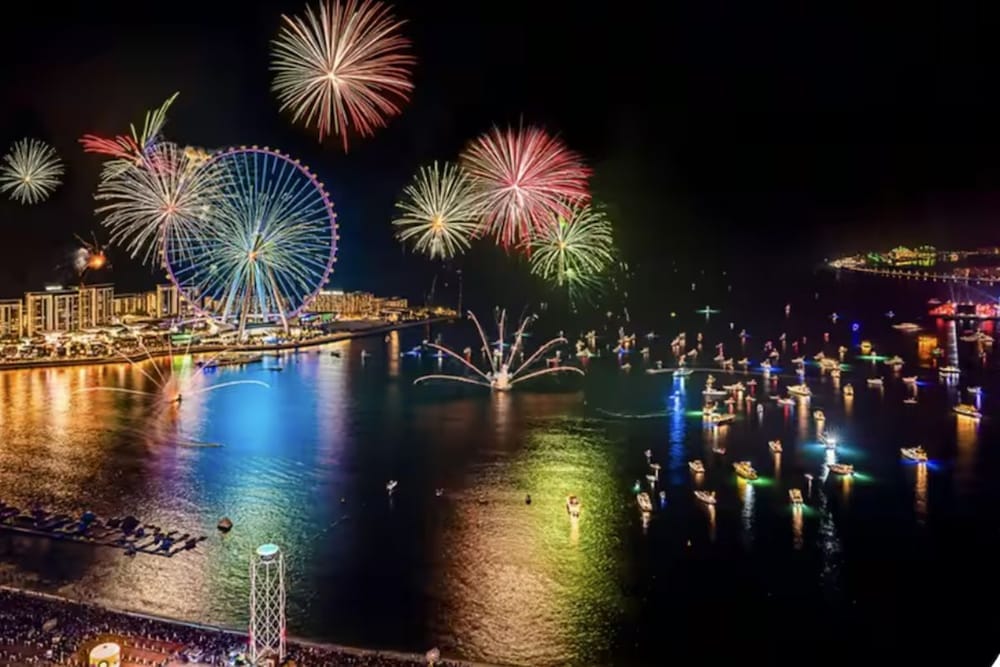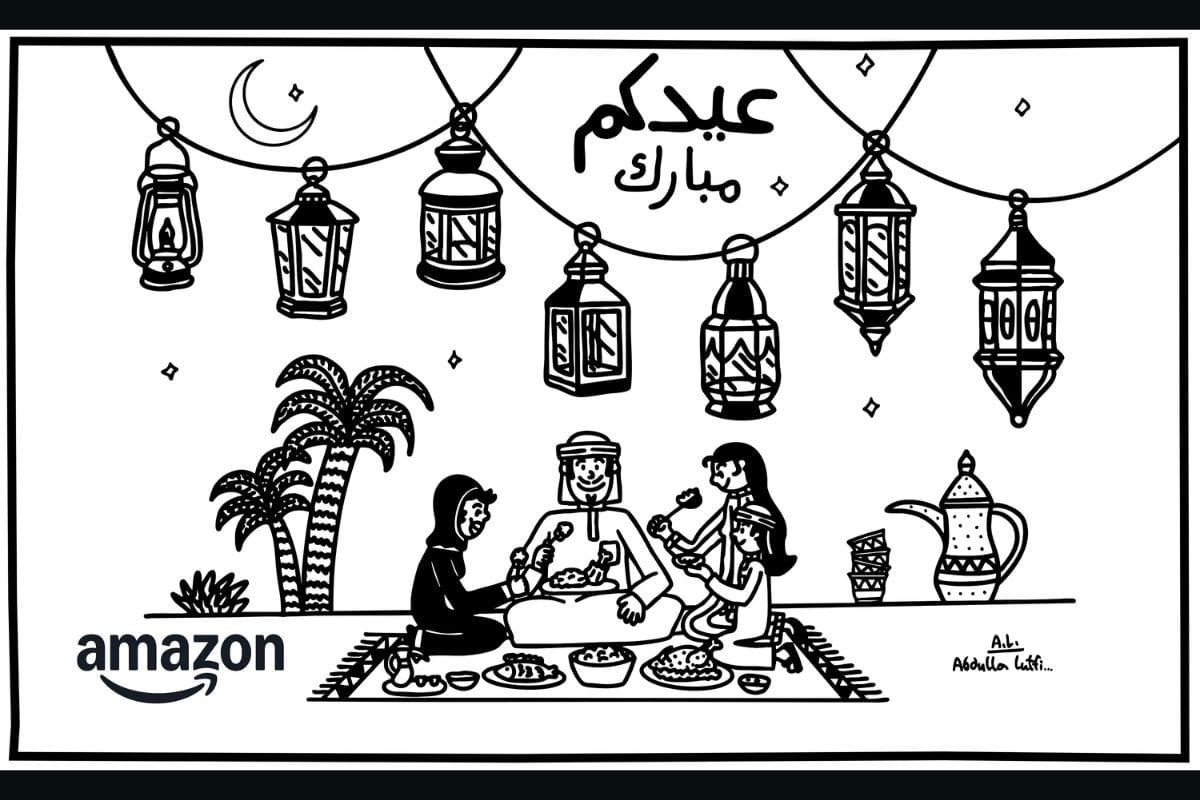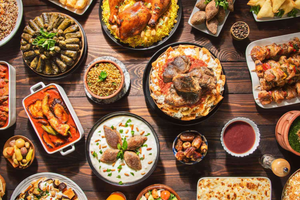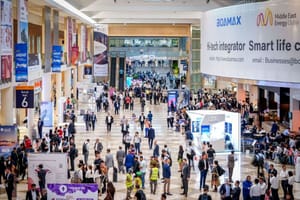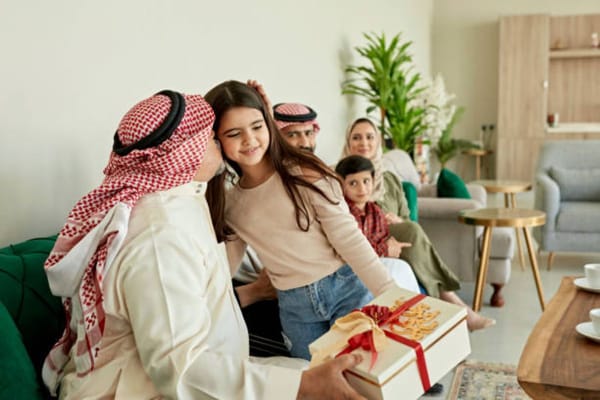There’s something about Eid that feels heavier than just happiness and lighter than everyday life. As the sun rises on Eid morning, there’s a strange sense of starting over. The air feels different. You wake up early, your mind clearer than usual, your heart somehow less burdened. It’s not the clothes or the food. It’s not even the three-day holiday. It’s something deeper. Something internal. Eid doesn’t feel like the end of Ramadan; it feels like the beginning of something new.
And the most striking part? This feeling returns every year, no matter what kind of year you’ve had. It’s not tied to how perfectly you fasted or how grand your celebrations are. Even in quiet homes, modest gatherings, or heavy-hearted years, Eid still manages to offer that emotional reset. A fresh start that seems to come from within, but also beyond you.
This article digs into why Eid feels like a reset button every year. Not metaphorically, not spiritually alone, but in ways that can be seen, felt, and even studied. We’re not here to talk about what Eid is. We’re here to understand what Eid does.
The Ramadan Effect: How 30 Days Prepare You for Day One
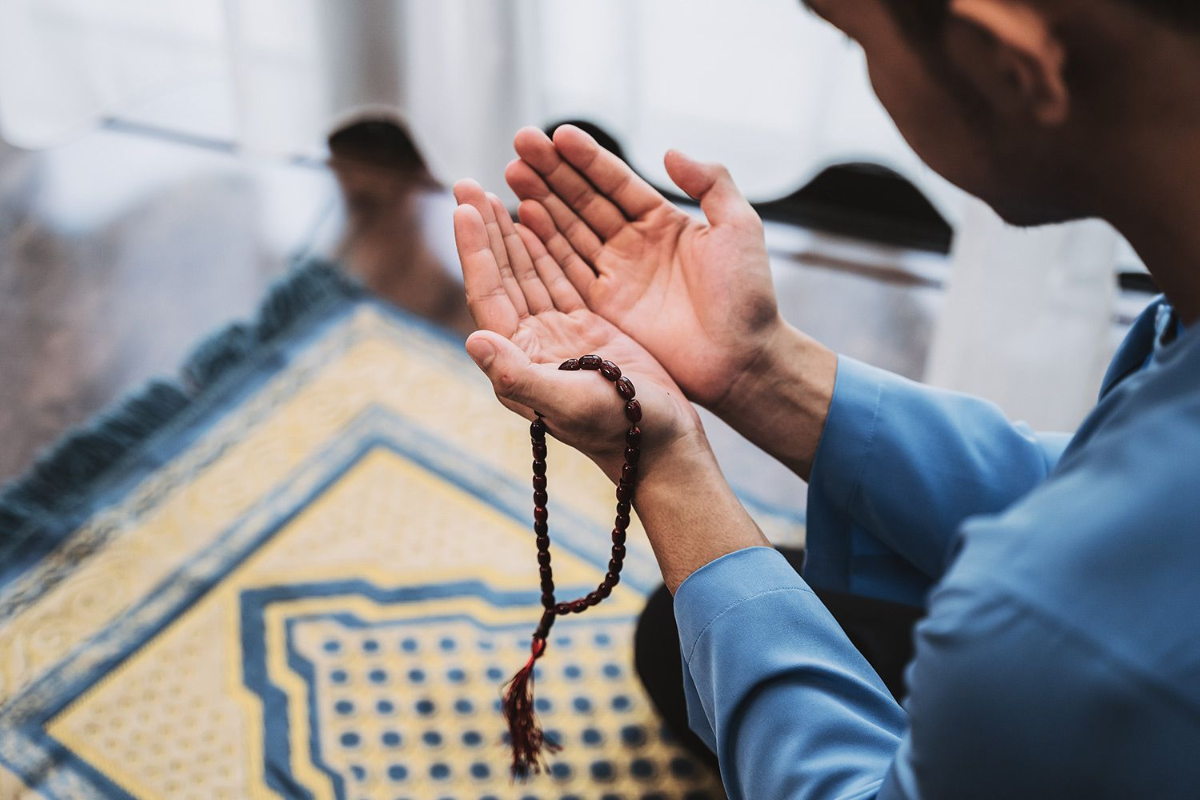
The feeling of renewal on Eid doesn’t appear out of thin air. It’s built — quietly, gradually — through 30 days of deep internal work. Ramadan isn’t just a spiritual exercise; it’s a full-body reset. It clears physical, emotional, and mental; by the time Eid arrives, you’re standing at the edge of something new.
Let’s break it down.
During Ramadan, the body adapts to fasting by shifting its metabolic state. After about 12 to 16 hours without food, the body begins to enter a process called ketosis, where it starts burning fat for energy. But alongside this physical detox, something fascinating happens in the brain: levels of Brain-Derived Neurotrophic Factor (BDNF) increase, which promotes mental clarity, reduces anxiety, and enhances cognitive function. Several studies have shown that intermittent fasting, which mimics the Ramadan pattern, leads to better emotional regulation and long-term mental well-being. That sense of mental lightness many feel on Eid? It’s not imagined. It’s chemical.
But it’s more than biology. Ramadan also forces a reset in habits. People reduce social media use, limit gossip, cut down on negativity, and often prioritize stillness and prayer over noise and distraction. Behavioral psychologists say that 21 to 30 days is the sweet spot for breaking habits and forming new ones. This means Ramadan, by design, is the perfect habit-loop breaker. By Eid, your default settings have shifted your reactions, your routines, and even your cravings.
Then comes the emotional preparation. The last ten nights of Ramadan are a spiritual crescendo. People stay up late reflecting, praying, and asking for forgiveness from God and often from one another. There’s a sense of release: of guilt, of pain, of what didn’t go right in the past year. The days before Eid become a quiet reckoning. And when you wake up on Eid morning, something has already been lifted.
This is why Eid doesn’t feel like the end of something. It feels like the beginning of someone — a slightly better version of you.
Spiritual Catharsis and the Cleansing of Guilt
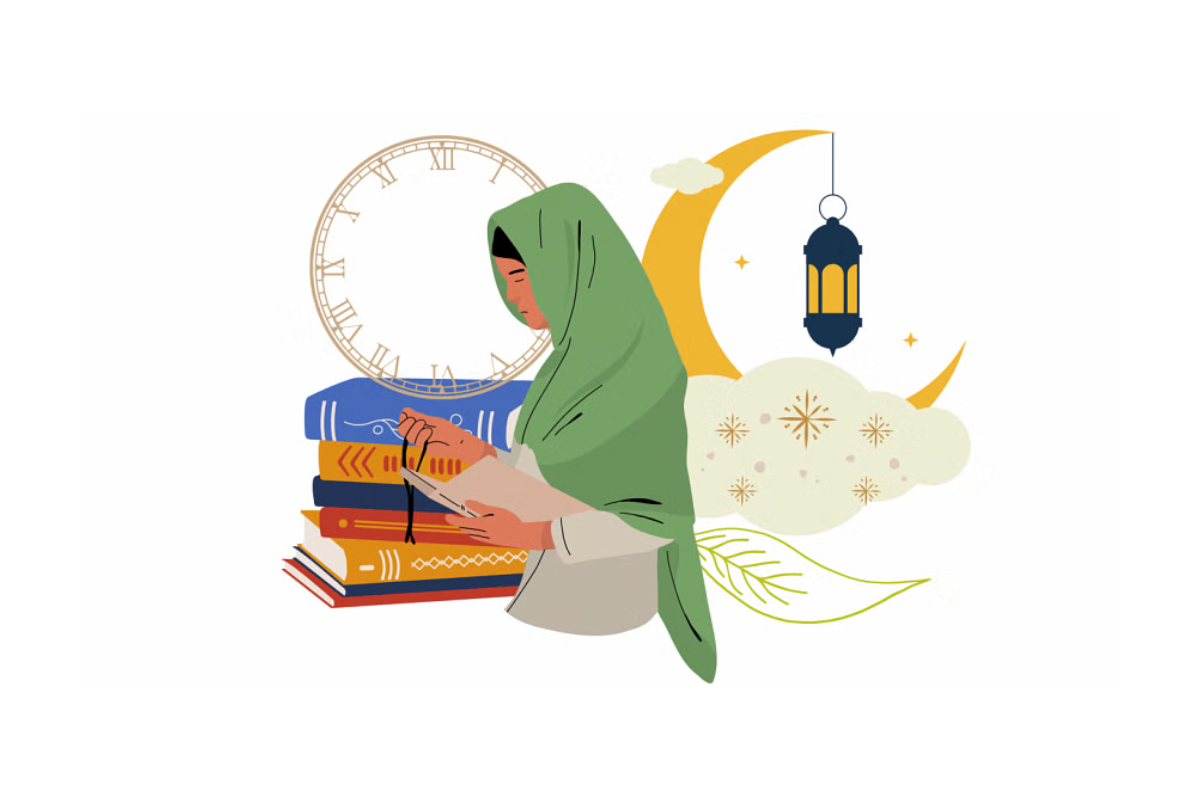
The feeling of renewal that comes with Eid is deeply tied to an emotional release that builds quietly over the month of Ramadan. By the time Eid arrives, something inside has shifted, not just spiritually but psychologically.
During the final ten nights, reflection takes on a new depth. People slow down, spend time in solitude, seek forgiveness, and confront the parts of themselves they often avoid during the rest of the year. These nights are filled with quiet reckonings with God, with the self, with memories and regrets. The process is intense but healing. It gives space to acknowledge where we’ve fallen short and ask for the chance to begin again.
Eid follows directly on the heels of this process. There’s no pause between the seeking and the receiving. The morning after these emotionally loaded nights, you rise, cleanse, wear your best clothes, and step into a space of hope. That transition is powerful. It doesn’t demand that you be perfect, only present and willing to move forward.
The tradition of Zakat al-Fitr, the obligatory charity given before Eid, quietly reinforces this emotional cleansing. It’s an act of release, letting go of what remains, offering good to someone else, and symbolically lightening your own spiritual load. Scholars describe it as a way to “polish” one’s fast, removing whatever minor flaws may have dulled its effect.
Across communities, this collective sense of emotional release creates a shared calm. Whether in packed mosques during Eid prayer or around family breakfast tables, there's a softness in the air, a kind of emotional stillness that comes when guilt gives way to grace.
That’s what makes the feeling so specific, so enduring. Eid becomes more than a celebration; it becomes a quiet declaration that you are ready to step into your life again, without the weight you carried before.
Cultural Rituals That Symbolise Rebirth
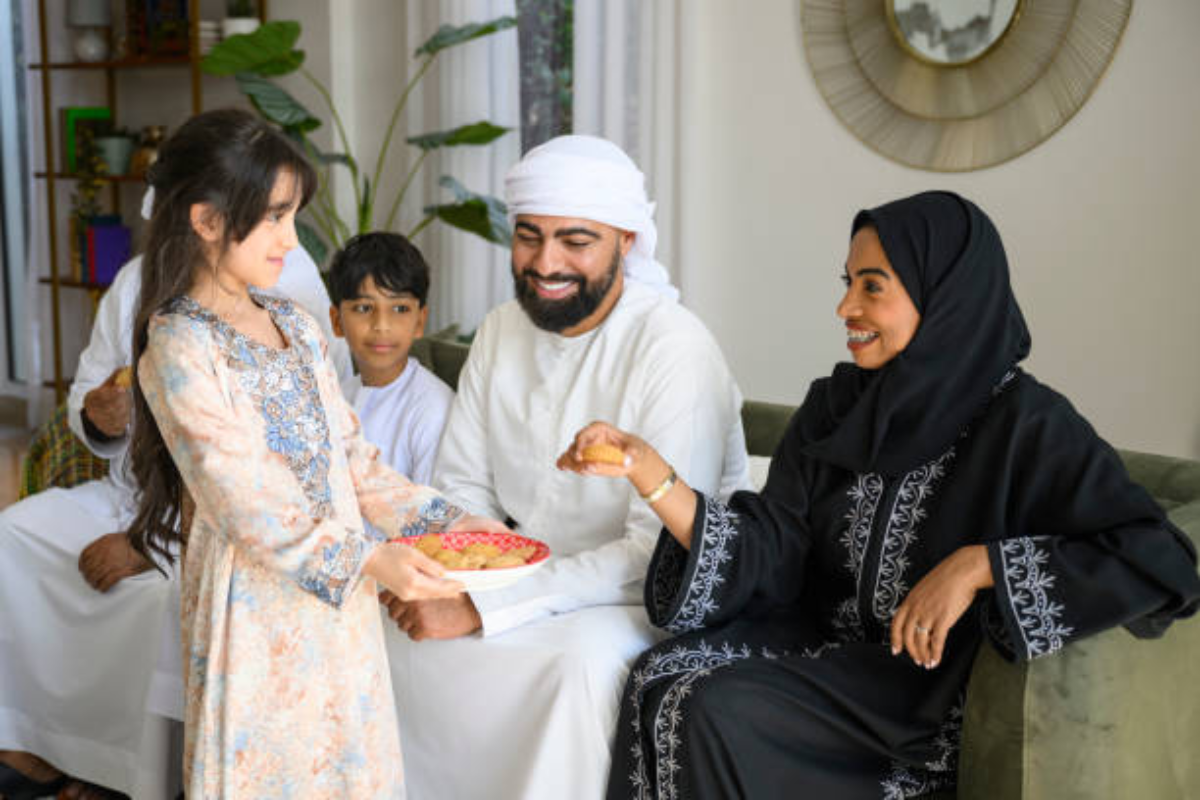
There’s something deeply symbolic about how people prepare for Eid, and most of it goes unnoticed. These rituals might seem small or routine, but they serve as powerful cues to the brain and body that a new chapter is beginning.
Wearing fresh clothes on Eid is one of the most visible traditions across Muslim cultures. But it’s not about fashion or impressing others. It’s a symbolic act of renewal. Clean, carefully chosen clothes signal a psychological shift; you’re stepping out of one version of yourself and into another. The choice of white, light-colored, or festive garments in many regions also reflects a desire for clarity, joy, and purity. In Gulf countries like the UAE, men wear crisp white kanduras while women wear freshly pressed abayas or flowing dresses, often with gold accents — simple, elegant statements that speak to a new beginning.
Scents play their own quiet role in this transformation. Attars, bakhoor, and incense each create a sensory environment that feels different from ordinary days. The smell of rose oil dabbed behind the ears or oud burning in the corner of a room isn’t just pleasant — it marks a shift. It tells the body: this day is set apart. Neuroscience shows that scent is one of the most direct triggers of memory and emotional response. Over time, Eid develops its own scent memory — something that feels both new and familiar every year.
Then there’s the home itself. In the days leading up to Eid, families clean, organize, and decorate not extravagantly, but with intention. This isn’t spring cleaning. It’s an internal reset expressed outwardly. Dust is cleared, carpets are aired, and the dining table is rearranged. Everything is made ready. These acts aren’t just about preparing for guests. They’re about preparing for joy — for a re-entry into life with a cleaner, clearer presence.
Sociologists call this kind of behavior “ritualized renewal.” Across cultures and belief systems, transitional moments are often marked by symbolic acts — new clothes, fresh scents, shared meals. These rituals help people move emotionally from one state to another. In the case of Eid, they help transform the quiet discipline of Ramadan into something open, expressive, and joyful.
This is why, even before the celebrations begin, Eid feels new. The body, the mind, and the surroundings have all been subtly rewired to signal change. It’s not loud or dramatic. It’s quiet, built into the details — and deeply effective.
Reconnection and Re-entry into the World
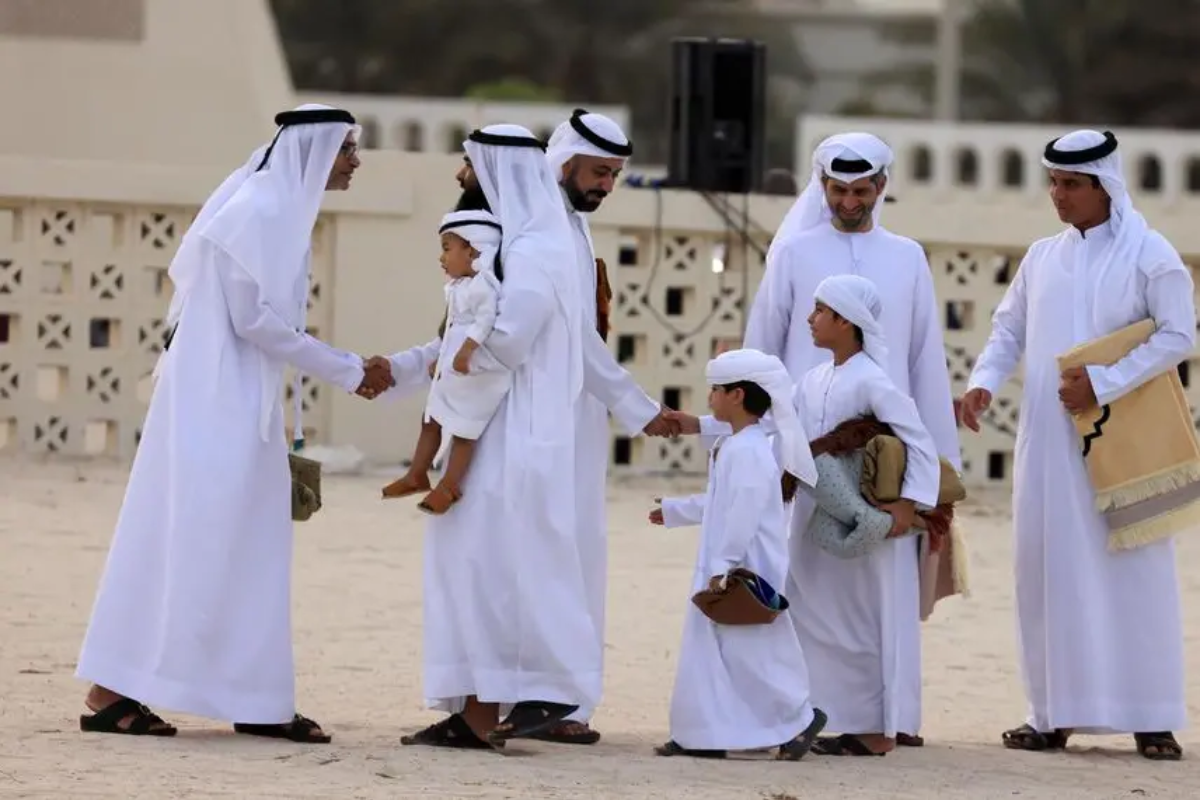
One of the most profound shifts that happens during Eid isn’t internal — it’s relational. After a month of inward focus, quiet evenings, and spiritual solitude, Eid reintroduces you to the world. Not the rushed, transactional version of it — but the human one.
Ramadan often brings a natural social slowdown. People are more reserved, more inward-facing. Nights are spent in prayer, mornings in rest. There’s a deliberate shrinking of the social calendar. Then, suddenly, Eid arrives — and everything opens up again. Houses fill with visitors. Voices get louder. Laughter returns to the dining table. There’s an unspoken understanding that this is the time to reconnect with others and, by extension, with yourself.
The act of visiting family and friends on Eid holds more weight than we often realize. It’s not just a social obligation. It’s a reweaving of bonds that may have frayed over time. People who haven’t spoken in months exchange smiles over sweet dates and kahwa. Elders are hugged. Neighbors are greeted. Even brief encounters carry warmth. These aren’t surface-level interactions — they’re small acts of healing.
Children run from room to room collecting Eidi. Siblings who may have argued earlier in the year sit down for breakfast together. In-laws share jokes. The rhythm of these moments creates a kind of emotional soft reset — a chance to repair without needing dramatic conversations or formal apologies. Eid doesn’t ask for declarations. It invites presence.
This return to togetherness can be emotionally grounding. Researchers in social psychology have long pointed to the power of communal rituals in fostering belonging and reducing stress. When people feel seen, remembered, and welcomed — even for a day — it reinforces their identity and restores emotional balance.
Eid also offers a moment of social reflection. Who do you reach out to? Who do you invite? Who are you relieved to see? These questions, though often quiet, help recalibrate relationships. Eid gives people permission to start over — in friendships, in families, even in how they see themselves in their communities.
It’s in this gentle return to others that many find a renewed sense of self. By reconnecting with people — after weeks of connecting with God and self — you’re stepping back into the world not as who you were but as who you’ve become.
Dopamine, Dress-Up, and the Eid Morning High
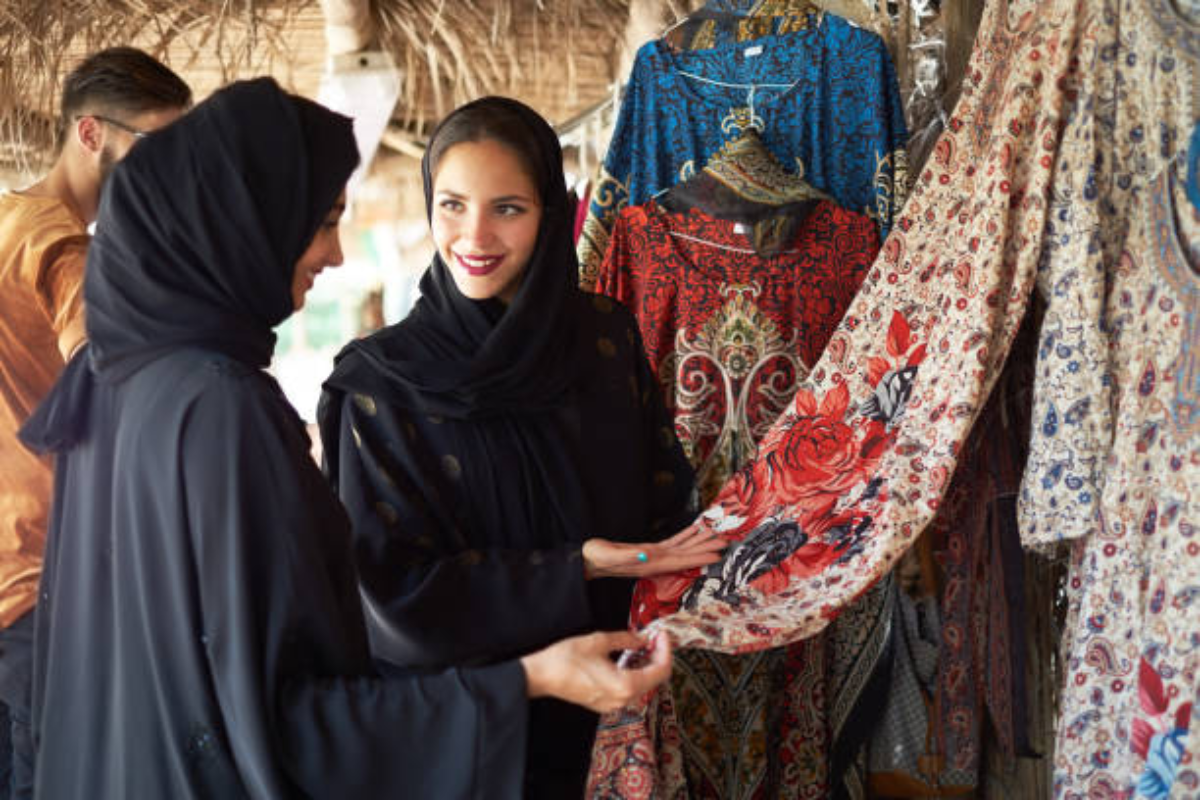
There’s a distinct kind of energy that comes with Eid morning. It’s not the same as waking up on a weekend or celebrating a birthday. It’s sharper, more alert, more charged. People rise earlier than usual, get dressed with unusual focus, move through their routines with a kind of practiced urgency — and yet, there’s no stress. There’s joy. Lightness. Excitement. For many, this specific moment — the early hours of Eid — is when the “fresh start” truly kicks in.
Neurologically, that’s no coincidence.
The brain is wired to respond to predictable reward after prolonged effort. This is where dopamine — the neurotransmitter tied to motivation and reward — comes into play. According to researchers in behavioral neuroscience, delayed gratification builds stronger dopamine responses than instant reward. In the case of Eid, that reward comes after 30 days of spiritual and physical restraint. The contrast is what makes the experience emotionally heightened.
But this spike isn’t just about the end of fasting; it’s about the sudden reintroduction of color, sound, and community. Everything that had been muted during Ramadan sweets, music, social interaction, dressing up returns all at once. The brain registers this as novelty, and novelty triggers dopamine surges. That’s why so many people describe Eid morning as feeling euphoric, even if they didn’t sleep much the night before.
Even the act of dressing up adds to this high. Studies in cognitive psychology show that what you wear directly influences mood, confidence, and even memory formation. Clothes aren’t just social signals; they cue the brain to shift state. Eid-specific outfits, especially when they differ from daily wear, signal a change in identity. When you wear something you’ve been saving, especially after weeks of simplicity, the brain associates it with significance. It’s a costume for a new role, even if that role is simply a more grounded, hopeful version of yourself.
There’s also a deep physiological response to community rituals performed in synchrony, like the Eid prayer. Research on group experiences like concerts, marches, and mass prayer shows that shared movement increases oxytocin levels, which are linked to trust, emotional bonding, and stress reduction. Standing shoulder-to-shoulder with others in prayer, bowing at the same time, chanting the same words — this collective action creates a natural emotional high that lingers well beyond the gathering.
When people say Eid morning “feels different,” they’re not exaggerating. They’re describing a genuine neurochemical shift: a rush of dopamine, a boost of oxytocin, and the quiet satisfaction of effort rewarded. It’s a full-body sense of beginning again.
Financial Gifting and the Illusion of Reset
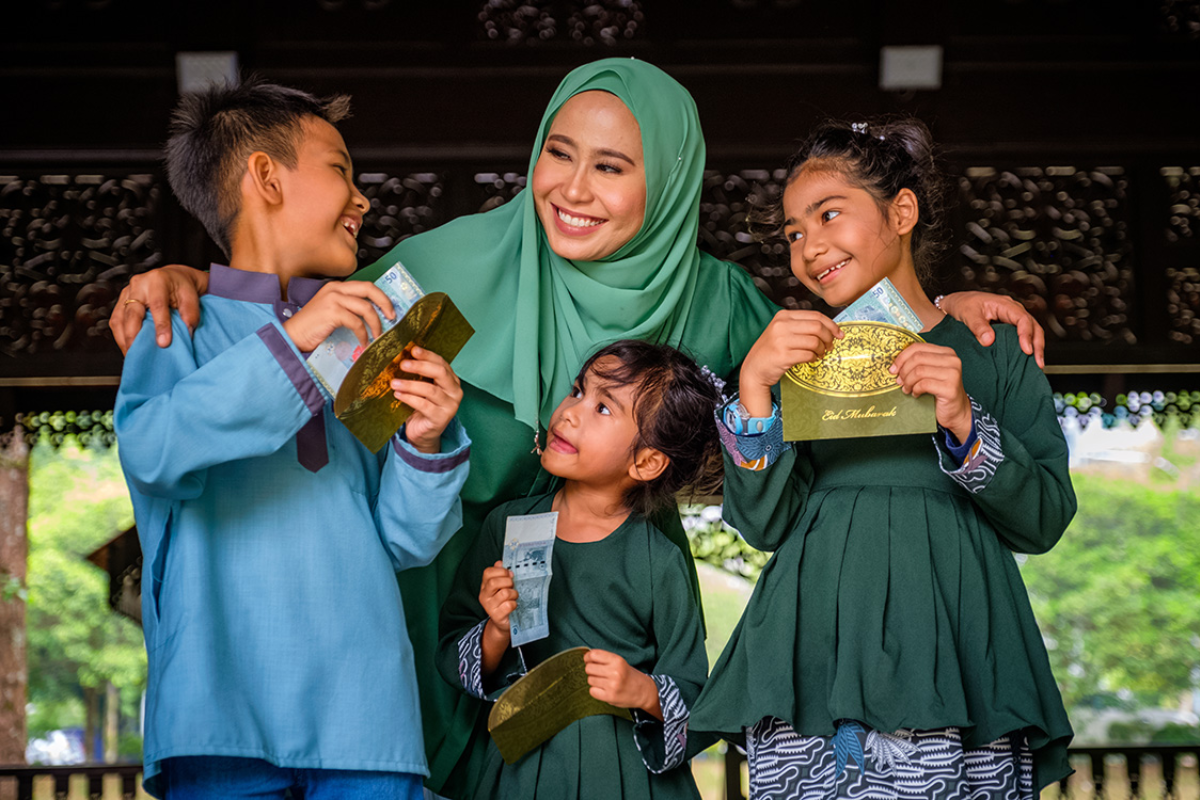
Every Eid, money changes hands in simple but symbolic ways — Eidi is given, gifts are exchanged, wallets open more easily, and people shop with a sense of purpose. It’s not consumerism for its own sake. These actions — when seen through a psychological lens — actually feed into the sense of starting fresh.
Let’s begin with Eidi — money traditionally given to children (and sometimes younger relatives or close friends). It may seem like a small token, but it holds emotional weight. For those giving it, it’s an expression of abundance, even if temporary. For those receiving it, it creates a feeling of possibility. A little cash tucked in an envelope can become a tiny affirmation: you’re thought of, you matter, and today begins something new. That’s a powerful message to send — especially to young minds learning to associate Eid with optimism and joy.
Beyond that, spending patterns during Eid shift in a way that suggests psychological closure and renewal. In many Muslim-majority countries, including the UAE, consumer data consistently shows spikes in retail activity during Eid — not just for clothing and food but also for home goods, travel bookings, and electronics. People upgrade. They refresh their surroundings. For some, Eid becomes the moment to finally buy what they’ve postponed all month — or all year. And while this can veer into excess, at its root is a very human desire to mark a transition through material change.
Psychologists often refer to this as “symbolic consumption” — using material objects to represent emotional or identity shifts. You’re not just buying a new watch; you’re stepping into a more punctual, polished version of yourself. You’re not gifting your parents something expensive because they need it, but because it represents gratitude, stability, and a reaffirmation of care. The transaction becomes transformation.
There’s also something emotionally balancing about giving money or gifts without expecting anything in return. It creates a subtle sense of control and generosity, both of which are linked to elevated mood and long-term well-being. In that sense, Eid gifting isn't about indulgence — it's about emotional circulation. You give, you receive, and you participate. It creates movement — financial, emotional, and symbolic.
This sense of movement is what makes Eid feel new. Money becomes more than currency. It becomes a medium through which people express hope, make gestures of change, and reclaim some sense of agency. The economy of Eid, at its healthiest, is a mirror of inner renewal.
Modern Psychology Meets Spiritual Tradition
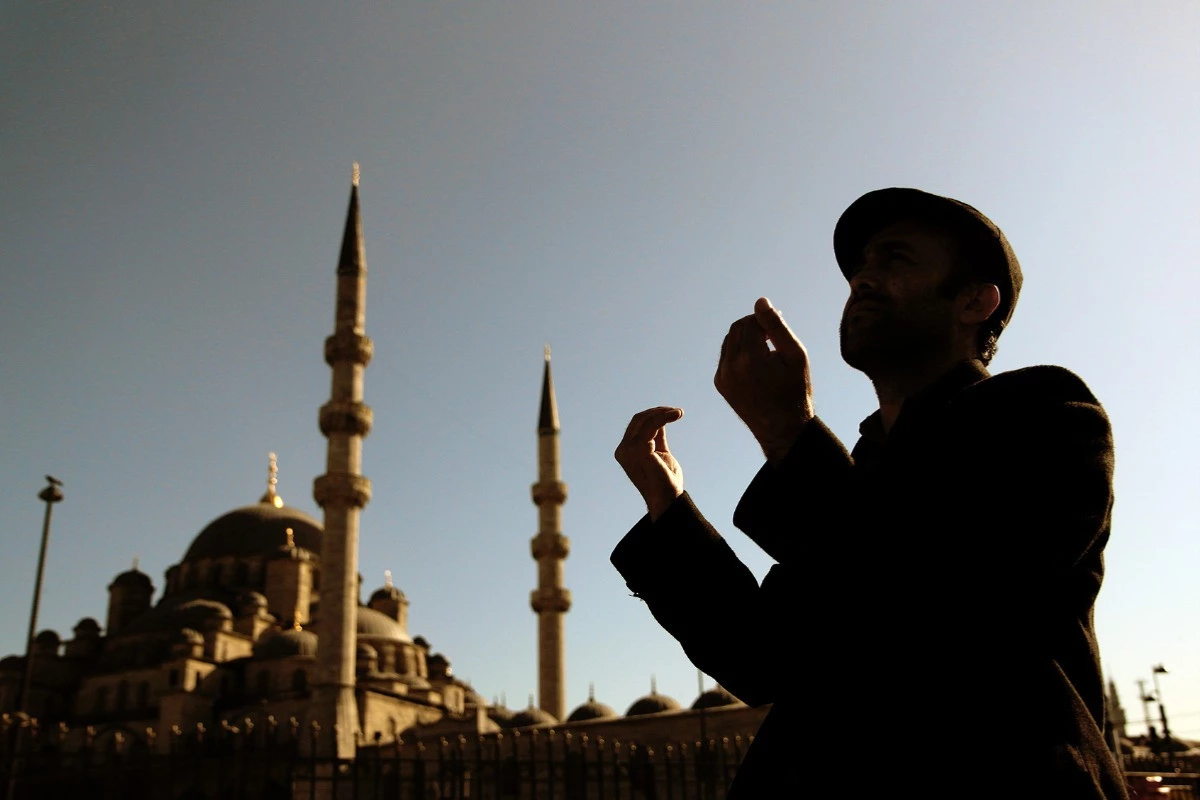
Much of what makes Eid feel like a clean slate isn’t just spiritual — it’s also deeply aligned with how human beings are wired to process change, reward, and growth. While religion offers the ritual, modern psychology helps us see the inner mechanics behind why this specific structure — a month of restraint followed by a day of release — is so emotionally powerful.
Start with delayed gratification. In behavioral science, this is one of the most cited predictors of long-term success and happiness. When people delay rewards and wait through periods of discipline, the eventual experience of joy is deeper, more meaningful, and more likely to lead to lasting motivation. Ramadan is a built-in exercise for this. Eid becomes the moment when the mind connects effort to reward, forming stronger neural pathways around self-control and intention.
There’s also the concept of behavioral momentum. When someone spends a sustained period developing healthier habits — waking up early, eating mindfully, engaging in spiritual practices, reducing digital noise they’re building momentum. Eid arrives just as this momentum peaks. It acts as an emotional anchor point, telling the brain: This version of you is working — hold on to it. That’s why people often use Eid to set new goals, not unlike New Year’s Day. The difference is that Eid comes after weeks of action, not just intention.
Another psychological principle at play is the need for closure. Humans tend to find peace not just in achievement but in completion. Eid gives a clear and emotionally satisfying sense of closure. The fast is broken, the prayer is offered, and the charity is given. There’s a structure that guides people to feel, without ambiguity, that something meaningful has ended — and therefore, something new can begin.
Even the core spiritual themes of Ramadan and Eid — gratitude, forgiveness, and self-awareness — mirror the pillars of mental well-being identified in positive psychology. Dr. Martin Seligman’s research on flourishing highlights five key components of well-being: positive emotion, engagement, relationships, meaning, and accomplishment. Ramadan touches each of these. Eid, then, becomes a natural celebration of that internal balance. It doesn’t just reward the fast — it rewards the growth.
These alignments aren’t coincidental. They point to something timeless: the idea that tradition, when thoughtfully practiced, often holds the very wisdom science is only beginning to measure. Eid feels like a fresh start because it is engineered — through both spiritual and psychological principles — to reset the mind, body, and heart.
Why the Feeling Comes Back Every Year — and Why That’s Beautiful
There’s something quietly remarkable about how Eid never loses its impact. Every year, it arrives with the same rhythm — the same early mornings, the same rituals, the same greetings. And yet, somehow, it still feels new. Still feels needed. Still feels like a beginning.
That sense of freshness isn’t a coincidence. It’s because Eid doesn’t offer a final transformation. It offers a seasonal one — a chance to pause, reassess, and return to the world with slightly clearer eyes. Just as nature has its cycles of decay and rebirth, Eid gives people an annual checkpoint. And each year, the starting line moves forward a little. You’re not the same person who stood here last year. Life has shaped you in the months between. And so Eid meets you where you are, offering you a moment to reset, regardless of what you’re carrying.
It’s this combination of familiarity and growth that makes Eid emotionally durable. The rituals don’t change much, but your relationship with them deepens. A child receives Eidi with giddy joy. A teenager dresses with growing self-awareness. An adult might step into the prayer hall with quiet reflection. An elder may find comfort in the stability of the day, even when everything else in life feels uncertain. Eid adapts to each stage of your becoming.
Psychologically, this kind of repeated symbolic renewal is powerful. According to identity theory, people need markers — moments that help them shape and reshape who they are becoming. Without them, life becomes one long stretch of sameness. Eid cuts through that. It offers structure in a world that often feels chaotic. A return to values in a time that often pushes distraction. A moment of stillness in the churn of daily routine.
And perhaps that’s why the feeling never fades. Because Eid doesn’t try to reinvent you in dramatic ways. It doesn’t expect a reinvention at all. It simply offers space — space to return, to recalibrate, and to continue. Year after year, that offer remains open.
That’s the beauty of it. It never asks too much — only that you show up.
The world offers loud resets — urgent, pressured, demanding change. But Eid is different. It’s quiet. Rooted. It doesn’t push you forward; it calls you back — not to who you were, but to who you were meant to be.
Eid doesn’t promise to fix everything. It simply gives you permission to begin again — even if you’re tired, uncertain, or starting small.
In a world obsessed with progress, Eid honours stillness. It celebrates quiet effort — the kind no one sees. You showed up. You tried. And that was enough.
Eid feels like a fresh start because it reconnects you to yourself, to your purpose, to what truly matters. It reminds you: not all beginnings have to be bold. Some are soft. Sacred. Real.
And in that softness, there is strength.
By design.
By rhythm.
By grace.
Also read:
